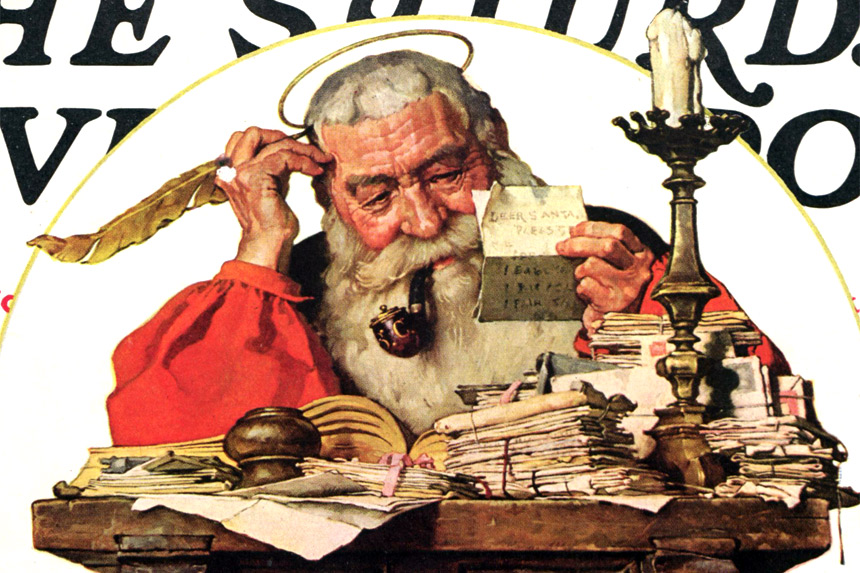Managing editor and logophile Andy Hollandbeck reveals the sometimes surprising roots of common English words and phrases. Remember: Etymology tells us where a word comes from, but not what it means today.
Word has it that Santa Claus is finalizing his Naughty and Nice lists in preparation for next week’s deliveries, but it wasn’t always this way. Santa’s lists didn’t become a Christmas trope until 1934, when the song “Santa Claus Is Coming to Town” hit the radio airwaves and became an immediate hit.
And it’s a good thing, too, because when the words naughty and nice first entered the English language, they both meant something very different from what they do today. In fact, back then you could be on both the Naughty and Nice list, but it meant you were in a pretty dire situation.
Naughty
The word naughty comes from naught (sometimes spelled nought), meaning “nothing.” In the 14th century, it originally described someone who was poor or needy, someone who had naught. But the word quickly took on a more metaphorical meaning, shifting from “lacking in wealth” to “lacking in moral character.” Someone who was naughty was wicked or immoral — in a much less playful sense than the word we know today.
The word’s severity attenuated over the years — indicating disobedience rather than evil — so that we see references to “naughty children” as early as the 1630s. The more sexual connotations of naughty arrived in the 1860s; by the time “Santa Claus Is Coming to Town” told us about Santa’s Naughty list in 1934, many adults were already raring to get onto it.
Nice
The word nice has shifted meanings so quickly and continually that there were times when a writer’s intended meaning wasn’t clear. When it entered the English language in the 13th century, nice — from the Latin nescius, which literally means “not-knowing” — meant “foolish” or “ignorant.” It was not nice to be nice.
During the 14th and 15th centuries, its meaning diverged — possibly because of those using the word and those being labeled by it. It came to describe both “a person or actions considered excessively luxurious” and “someone who is finely arrayed.” One can certainly imagine a commoner referring to a noble in his frilliest finery as nice in a derogatory sense, and the noble accepting the label as a compliment.
Over the next three centuries, the word took on a number of other definitions in the common tongue, including shy or reserved, precise, trivial, discriminating, and as a word to describe polite society. In Romeo and Juliet, Shakespeare may have been playing on the fluidity of the meaning of nice when Benvolio explains to the Prince,
Tybalt, here slain, whom Romeo’s hand did slay;
Romeo, that spoke him fair, bid him bethink
How nice the quarrel was, and urg’d withal
Your high displeasure.
Today, a child is considered nice who is polite and kind — though being obedient is more likely to get one on the more lucrative of Santa’s lists.
Become a Saturday Evening Post member and enjoy unlimited access. Subscribe now




Comments
Thank you for this little piece of enlightenment. I love to know background information
Another great feature on the origins of these two important words, naughty and nice. I feel I’ve been good all year Andy, but was chastised rather harshly in the Post’s own ‘News of the Week’ (12/7/18) for my comments on “Baby, It’s Cold Outside” and being too flirtatious with Gay Haubner. She was too, along with Bob Sassone who got the worst of it.
Because of this, I’m choosing to say I was naughty in its 14th century meaning of ‘nothing’. I like the word ‘nice’ also, because the sound of the word itself really is nice!